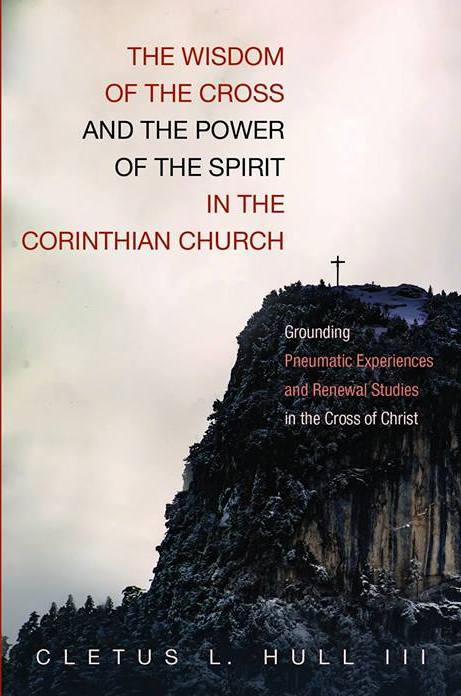Christology and the Cross
There is power in the cross of Christ. In this excerpt, pastor, theologian, and historian Cletus Hull introduces us to his new book, The Wisdom of the Cross and the Power of the Spirit in the Corinthian Church: Grounding Pneumatic Experiences and Renewal Studies in the Cross of Christ.
The cross of Jesus and Christology are inseparably intertwined. Jürgen Moltmann succinctly writes that “Christianity has rightly been described as ‘the religion of the cross.’”[1] Across the spectrum of church history, numerous theologians have written about Paul’s Christology. St. Basil, of the Cappadocian Fathers accentuated, as Paul wrote in Colossians 1:15 that Christ was “the Image of the Invisible God.”[2] Martin Luther’s theologia crucis expounded the Pauline theology of the message of the cross. John Calvin shared a high view of the cross in his writings. These theologians, among others, noted and observed from Paul’s epistolography, the apostle’s emphasis on the cross.

This excerpt comes from pages 9-10 of The Wisdom of the Cross and the Power of the Spirit in the Corinthian Church: Grounding Pneumatic Experiences and Renewal Studies in the Cross of Christ by Cletus L. Hull, III (Pickwick, 2018).
On the other hand, modern theologians have invented a schizophrenic relationship with the cross. The so-called New Perspective on Paul offers a drastically different view of the salvific message of Christ. E.P. Sanders advocates in NPP [Editor’s note: Follow this link for PneumaReview.com coverage of the “new perspective on Paul.”] that the Jews did not live by a system of works-righteousness. He counters Luther’s reformation views of sola fide claiming that Luther misrepresents Paul as well as Judaism. However, his unorthodox writings eliminate the strong vitality that the apostle declares in the Pauline corpus (Eph. 2:8-10).
Historical-critical theologians such as Rudolph Bultmann and John Macquerrie spiritualize the cross to the extent that the historicity of the life of Christ is diminished. Their demythologizing of the Bible creates suspicion and lack of belief in the supernatural. Michael Welker in God the Spirit writes that “it is no secret that biblical criticism has totally destroyed all attempts to divinize Scripture or to attribute any form of ‘supernaturalness’ to it.”[3] These rationalist modern biblical interpreters reveal their bias toward a suspicious Enlightenment approach to scripture. Ultimately, because of the emphasis placed on their notions, the vitality and power of the cross has generated a diminutive effect in the life of the church and the academy.
Yet, not all present-day theologians consent to liberal theology. Udo Schnelle, Frank Matera, and Gerhard Forde creatively write about a classical teaching of the cross. In the past thirty years, an abundance of evangelical scholars have written and superlatively supported an original Pauline theology. My survey of this most important topic includes their works.
Category: In Depth, Winter 2019


